
- Stav Shvartz
- May 10, 2021
- 7:08 am
- No Comments
China AV - Apr. Newsletter
The global scarcity of chips is affecting the automotive industry, especially in the AV sector. Startups and full stack suppliers are struggling to get chips to support their growth, lead times increased up to 52 weeks and it even led NIO to stop production last month for few days. Xpeng announced it will launch its own AV chip by the end of the year and it is an interesting approach of distributed specific solution capabilities in one of the most consolidated markets in the world. Nasdaq continue to focus attention with tuSimple IPO at over USD 8 billion valuation, while everyone gets ready for the upcoming DiDi IPO at estimated USD 100+ billion valuation!!
Apr.1st: Radar manufacturer Autoroad has announced a Series C funding round of nearly RMB 100 million, which will be used for the construction of a large scale mass production line for the front-mounted millimeter wave radar project, as well as investment in product innovation and R&D. Autoroad’s independently developed 77GHz mid-range millimeter wave radar and 77GHz near-range millimeter wave radar. It has already received hundreds of millions of dollars in orders from OEMs.

Apr.8th: Xpeng announced it is developing autonomous driving chips, and the project has started several months ago, carried out simultaneously in China and the US. According to the senior management of Xpeng, at present, the project team consists of less than 10 people. The chip is expected to be rolled out by the end of this year or early next year.

Apr.8th: Changsha Intelligent Driving Research Institute (CIDI) has completed a 300 million RMB Series B financing round. This financing round is the second in three months as only at January this year, CIDI completed a 400 million RMB round of financing.
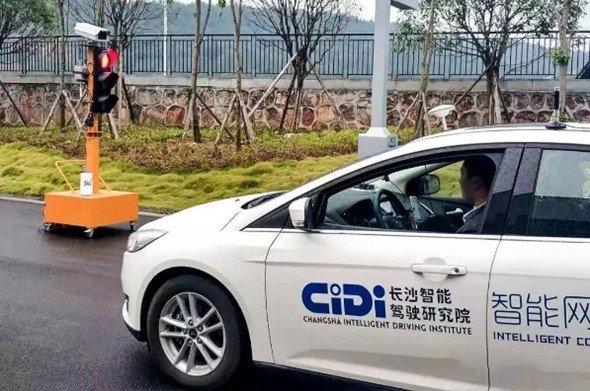
Apr.8th: DiDi Autonomous Driving released the world’s first continuous 5-hour no-takeover video of autonomous driving, and Didi autonomous driving’s COO, Meng Sheng, invited Sebastian Thrun, founder and chairman of Udacity and founder of Google’s autonomous driving project, to join the conversation to discuss the technical highlights of the video. Sebastian Thrun gave high praise to the performance of the vehicles in the video, which he said showed the world’s leading level of autonomous driving technology.

DiDi has appointed Goldman Sachs and Morgan Stanley to lead its IPO and plans to file confidentially for a New York listing this month.
Apr.12th: Plus.ai announces the signing of a MOU with IVECO, a leading commercial vehicle OEM and a leader in clean energy commercial vehicles. The two companies will jointly develop autonomous driving heavy trucks and promote the commercialization of the products worldwide. According to the MOU, Iveco’s latest generation of S-Way heavy trucks will be equipped with the PlusDrive autonomous driving system. The two parties will work together to create safe, fuel-efficient, mass-produced and sustainable autonomous driving heavy trucks, building on Iveco’s strengths in the development, manufacturing and sales of heavy trucks and Plus.ai’s capabilities in the development of autonomous driving tech.
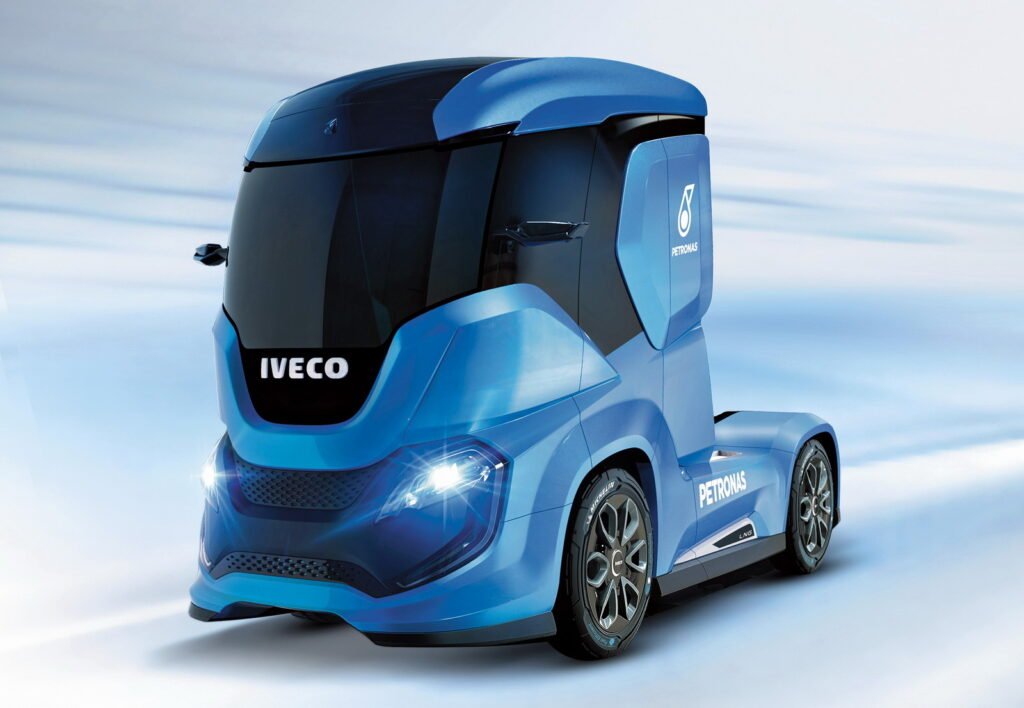
Apr.12nd: WeRide has received a permit to test driverless vehicles on public roads in San Jose, California. WeRide is the seventh company, following AutoX, Baidu, Cruise, Nuro, Waymo and Zoox, to receive a driverless testing permit. The company is one of China’s most-funded autonomous vehicle technology startups with investors that include bus maker Yutong, Chinese facial recognition company SenseTime and Alliance Ventures by Renault-Nissan-Mitsubishi alliance.
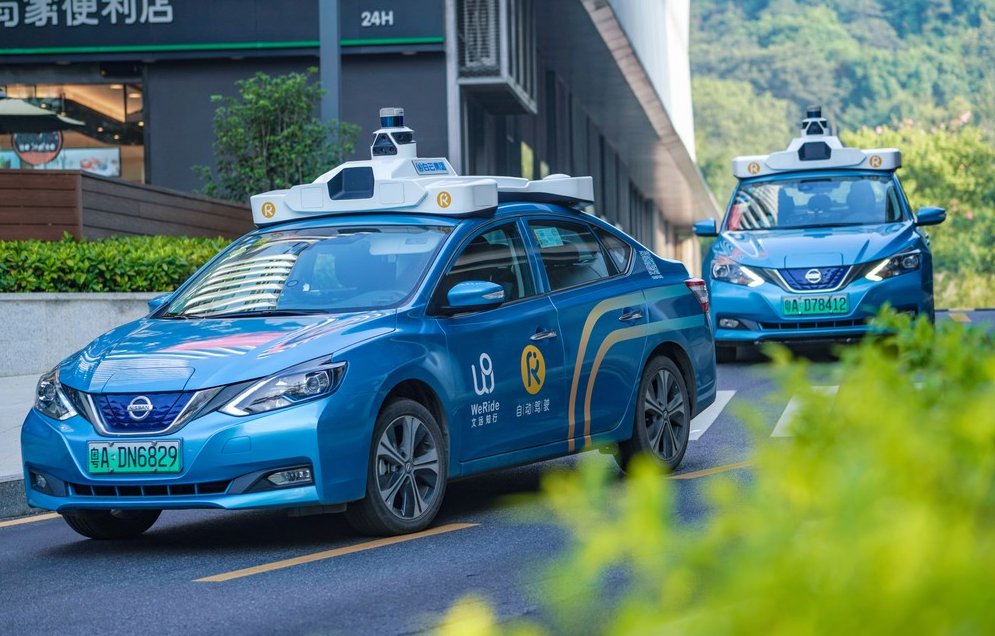
Apr.13th: The Beijing Intelligent Networked Vehicle Policy Pilot Zone was officially opened. The first application licenses were issued to Baidu Apollo, Pony.ai and DiDi. Among them, Baidu Apollo received 53 night (16:00-22:00) and special weather test notices and 5 general road test licenses. Pony.ai received a total of 30 licenses, while DiDi autonomous driving did not disclose the number of licenses. In this early policy, fully validated intelligent network-connected vehicles are explicitly encouraged to take the lead in conducting trial runs and providing commercial operation services in the policy early zone.


Apr.15th: TuSimple has officially launched on NASDAQ. TuSimple’s IPO was priced at USD40, exceeding the previous IPO price range of US$35 to US$39, and that 33.78 million Class A common shares were issued, for a total share capital of approximately 212 million after the IPO. On this basis, the market capitalization of the TuSimple IPO was calculated at US 8.5 billion!! The proposed capital raised amounted to USD 1.35 billion. Among the investors, Sina, initially took a RMB 50 million stake and participated in several investments, accounted for 20% of the total shares, with its highest return on one investment being over 200 times. After the IPO, Sina took the opportunity to sell 6.75 million shares, cashing in about RMB 1.8 billion.

Apr.19th: DJI and SAIC-GM join hands to produce cars, the two sides will adopt in-depth cooperation rather than parts procurement. The first car will be put into production as soon as this year. At present, DJI has released its intelligent driving system, including D80, D80+, D130 and D130+, in which D80/D80+ can cover the speed range of 0 to 80km/h, covering mainly urban ring roads/expressway scenarios, whereas D130/D130+ can cover the speed range of 0 to 130km/h.
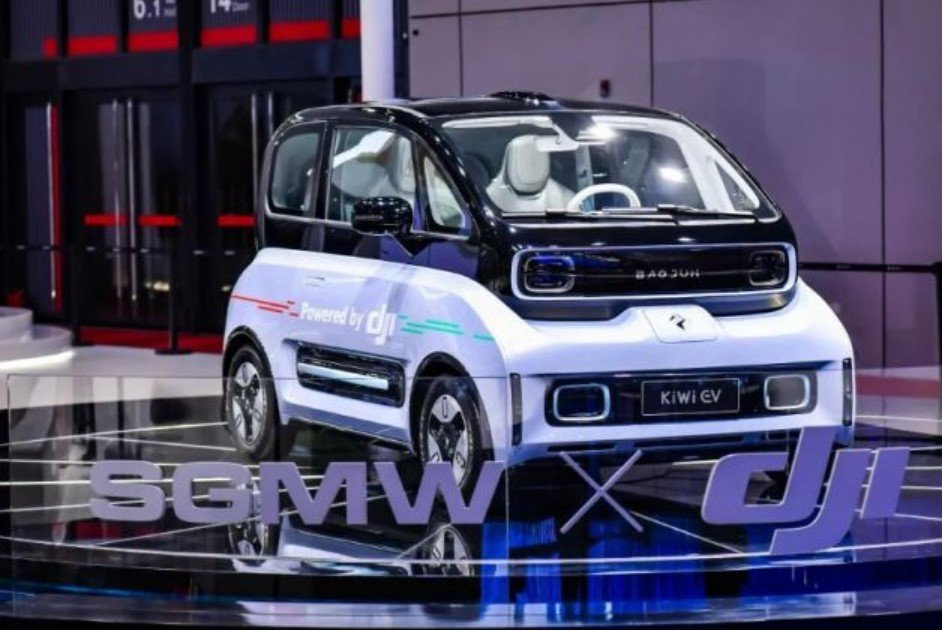
Apr.20th: China released the first operational analysis report of unmanned buses. According to the report, Suzhou Q1 Road, the first 5G unmanned bus route in China jointly deployed by China Mobile and QCraft, has been in regular operation for more than five months, accompanying more than 11,000 low-carbon trips. The report points out that the total length of unmanned bus routes in operation on public roads in China is 54.6 km, ranking first in the world and 8.6 times that of the second-ranked United States.

Apr.23rd: Continental and Horizon Robotics signed a memorandum of cooperation, announcing that they will work together to establish an intelligent driving joint venture to provide industry-leading ADAS and autonomous driving software and hardware systems for local and global vehicle manufacturers in China, taking full advantage of their strengths in product quality, supply chain and artificial intelligence chips and algorithms.
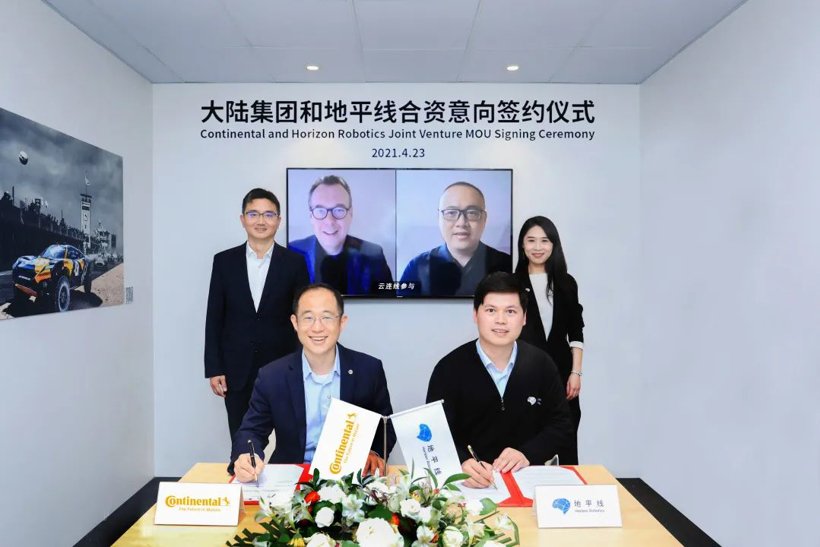
Apr.23rd: DeepRoute.ai, a full stack L4 VDS provider, has received the “Notice of Intelligent Networked Vehicle Application Demonstration” issued by the Shenzhen. DeepRoute.ai is the first company in Shenzhen to receive this notification, which means that DeepRoute.ai has become the first company to be able to carry out the demonstration of autonomous driving manned applications in Shenzhen.

Apr.28th: The Secretariat of the National Technical Committee for Information Security Standardization has released a draft standard on “Information Security Technology, Internet-connected Vehicles Security Requirements for Collected Data”. The draft stipulates that data such as road, building, terrain and traffic participants collected from the environment outside the vehicle by sensors such as cameras and radar, as well as data related to the location and trajectory of the vehicle, shall not leave the country.

Apr.28th: Chinese mobile phone manufacturer Oppo is setting its eyes on the auto market. The founder of Oppo, Chen Mingyong conducted a serious meeting with Zhu Wei, President of CATL. Chen also led his team to visit auto industry institutions, including China Automotive Research Group. In December 2020, Oppo obtained two patents closely related to the automobile industry. At 2021Q1, Oppo participated in the SOA framework project of Lingshu, the subsidiary company of Chinese Auto veteran SAIC Motor, wishing to export its camera equipped with anti-shake technology for taking photos and for face recognition in the cockpit.
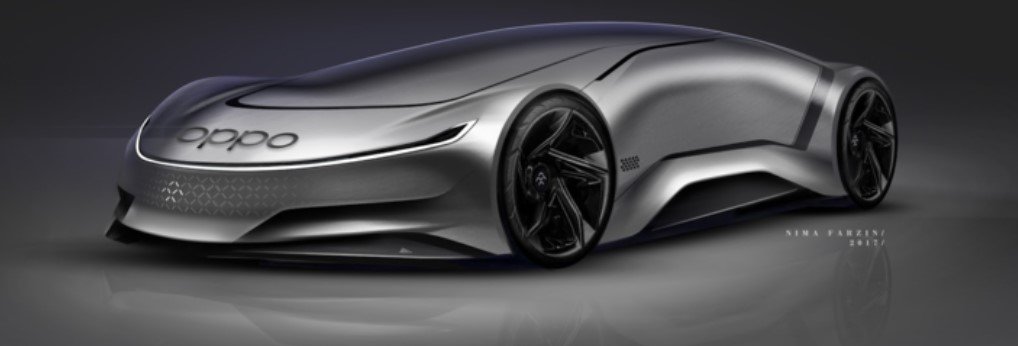
Apr.28th: Plus.ai has announced a partnership with Cummins, a leading engine manufacturer, to develop the world’s first supervised autonomous driving natural gas heavy-duty truck. The new vehicle is expected to hit the market in 2022. The two companies have previously worked together to develop low fuel consumption autonomous driving heavy trucks. Cummins will use its world-leading engineering and a range of advanced features to seamlessly integrate its natural gas powertrain with the PlusDrive system.
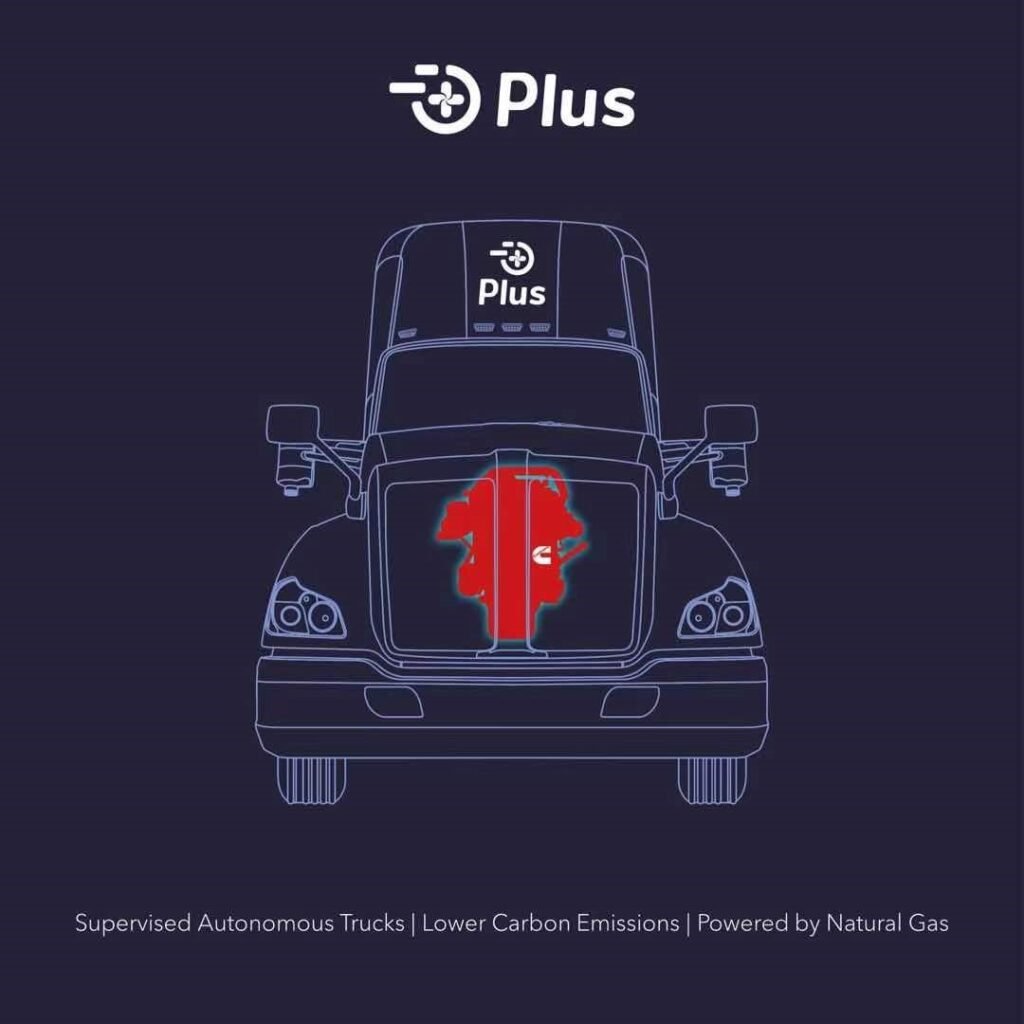
Sources: Gasgoo; EqualOcean; TechCrunch; Lieyunwang; TechWeb.



